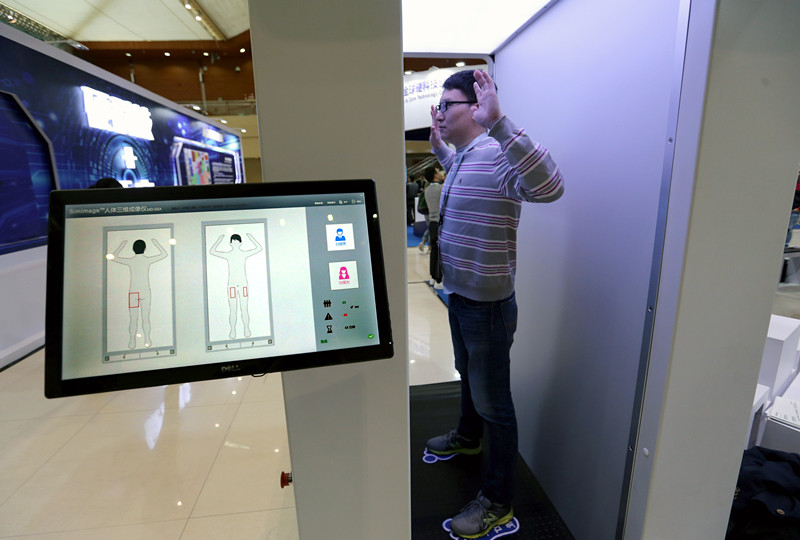New security scanner ready for airports
By Zhao Lei | China Daily | Updated: 2018-07-11 09:57

China Aerospace Science and Industry Corp, the country's largest missile maker, developed what engineers say is the most advanced security screening instrument in the nation - the so-called 3D millimeter wave scanner.
The scanner, designed and built by the Beijing Huahang Radio Measurement Institute under CASIC's Third Academy, is the "smartest and most capable" of all security scanners in China, according to the institute, which specializes in radar and photoelectric equipment.
Several countries including the United States, the United Kingdom and Japan have already adopted similar wave scanners for airport security checks.
The device is a whole-body imaging device that uses a form of electromagnetic radiation to detect objects concealed beneath a person's clothing.
Zhao Yinghai, chief designer of the product, said that compared with the metal detectors widely employed at government buildings, public venues and security checkpoints at airports and railway stations, the new scanner offers faster response times and higher accuracy with much less manpower needed.
The scanner is capable of detecting as many as 89 dangerous or risky items within 1 second, including those "invisible" to existing body-screening devices such as corrosive or flammable liquids.
The device has a 95 percent accuracy rate, meaning most security personnel will be released from time-consuming hand searches. The scanner will greatly boost security checkpoints' efficiency while being more convenient for passengers, Zhang said, noting it is safe for use on humans.
"Its radiation on a human body is one thousandth that of a mobile phone signal - so it's basically radiation-free," he said. "Its safety has been examined and certified by national authorities, and all related information is available to the public."
Hu Lin, one of the scanner's designers, said that even if a passenger carries a dangerous item smaller than a 1-jiao coin, it will be instantly detected and displayed on the scanner.
As for privacy concerns, Hu said the scanner shows a human figure on the display at the checkpoint rather than an actual image of passenger's body. In a separate control room, security examiners will be able to see the actual image but the passenger's face and groin will be blurred.
The institute built China's first prototype millimeter wave scanner in 2011 and has registered more than 40 national patents regarding advanced body-imaging technologies. The institute said it has continued to upgrade the product, which is in trial use at several domestic airports.
The Civil Aviation Administration of China recently issued a set of guidelines on the use of millimeter wave scanners at airports, encouraging the replacement of metal detectors that have been relied upon by Chinese airport security authorities for 26 years.
The Civil Aviation Administration conducted trials of similar scanners at multiple domestic airports in August and May.
























